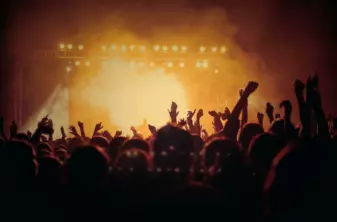The Importance of Safety Training for Event Crew

Working in a physical and active industry, the safety of our crew, clients, colleagues, and the general public is always our absolute number one priority. From rigging, staging, loading, and moving equipment - there are many tasks involved in event production that can be dangerous if not performed correctly or with caution. This is why safety training is essential for all event crew members. At Alpha Crew, we pride ourselves on our extensive and thorough health and safety processes that have allowed us to work safely and with appropriate caution for over a decade.
In this post, we’re exploring the importance of safety training and key factors to consider when doing so. Keep reading to find out more!
Identifying Potential Hazards
Before any event production can take place, it is important to identify potential hazards and risks associated with the job. This is where a risk assessment comes in. A risk assessment is an essential tool that helps identify these potential hazards and evaluate the risks associated with each task. During this, factors that are usually considered include the location of the event, the event type, the equipment that will be used, as well as the skills and experience of crew and contractors who will be working the event. Once these have been identified, appropriate safety measures are implemented to mitigate the risks. This preparation is an essential preventative measure for any accidents or safety issues that may arrise during production of the event.
Ongoing & Emergency Training
Safety training is not a one-time event. Ongoing training and revisiting procedures and information is essential to ensure crew stay up-to-date on the latest safety procedures and protocols. In addition to this, safety procedures should be reviewed and updated regularly so they remain effective and inline with any laws and legal requirements for crewing.
Additional training should also be provided to prepare for any emergency or unexpected situations. Although these cannot be predicted, it is key to make sure your team are trained to respond quickly and effectively in any emergency, enforcing regular safety procedures where possible, practicing strong communication skills, and keeping a cool head in a crisis. There have been two situations at Alpha Crew were incidents unrelated to the job at hand occured near by, and both times our crew members saved someone’s life by thinking on their feet, acting quickly and providing medical assistance until paramedics arrived on the scene. Thanks to their health and safety training and their understanding of its importance, they were able to put their skills to practice and make a real world difference.
Equipment & Handling
Providing the proper safety equipment to your crew is essential to prevent injury and make sure they are undertaking all tasks as safely as possible. This equipment can vary depending on the specific needs of your crew and the job at hand, it can include hard hats, safety glasses or ear protection. There may also be additional items that are needed, depending on the requirements of the job. For example, if it is required to work at heights, crew may need harnesses or fall protection equipment to ensure their safety and the safety of those around them.
Some jobs may require special machinery or equipment to be used. In these instances, only crew members who are fully trained and certified to use these types of equipment are able to undertake these tasks. Our crew are certified telehandlers, scissor lift, cherry picker and forklift drivers. Senior staff also undertake IOSH and NEBOSH training so that they can manage the team and the job with health and safety at the forefront of everything they do.
Teamwork and Leadership
A solid team structure and open line of communication between crew will enable jobs to run more smoothly and ensure they meet health and safety requirements, avoiding accidents and injury. Make sure to encourage your team to report any hazards they encounter so that they can be addressed quickly and effectively. Senior crew members should make sure to do the same and lead by example, following all safety procedures and wearing proper equipment at all times.


